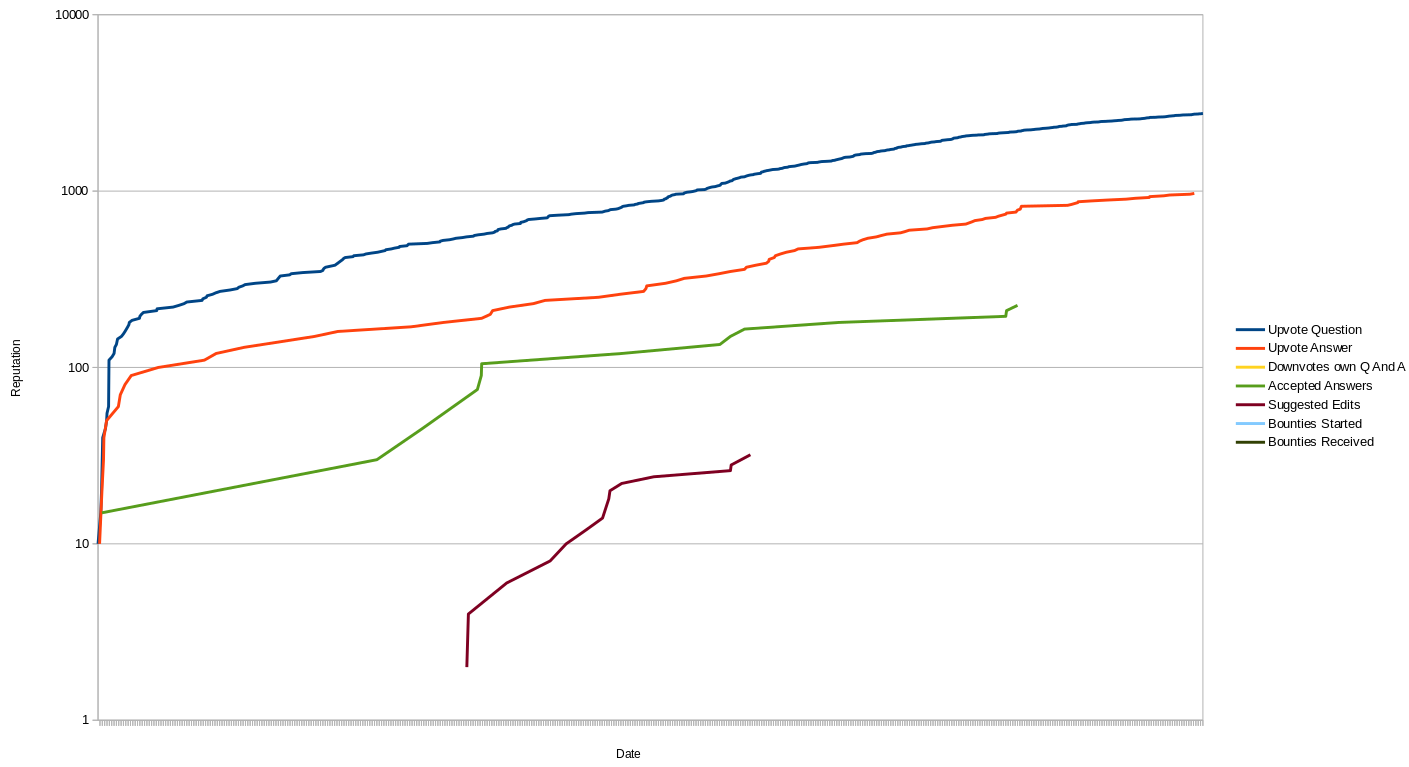I am wondering if anyone has analyzed average reputation points accrued over time.
Given that posting a good answer to a question will accrue a total of x points over a year, I imagine there must be some kind of curve that looks like this, on average:
- first 30% of total reputation points accrued within 12 hours
- add'l 20% accrued hours 12-24 (cumulative 50% within a day after posting)
- add'l 20% accrued days 2-7 (cumulative 70% within first week)
- add'l 15% accrued days 8-30 (cumulative 85% within first month)
- final 15% accrued months 2-12
And I imagine the curve could be somewhat different, depending on different factors:
- Stack Exchange community (Stack Overflow, Meta, etc.)
- Whether the answer was accepted
- Number of upvotes given to the question (within first hour, day, week, etc.)
- Number of answers at time of posting
- Reputation score of the person providing the answer
- etc...
I'm getting more involved in the Stack Overflow community, and it would be interesting to estimate the total value of my activity, based on the early response.
If I spend an hour answering questions, and a day later I see that I got 50 reputation points from that activity, what's the long-term value? Can I expect it to "grow" from 50 to 80 over the next month, or year? Or to 100? Maybe 150?

